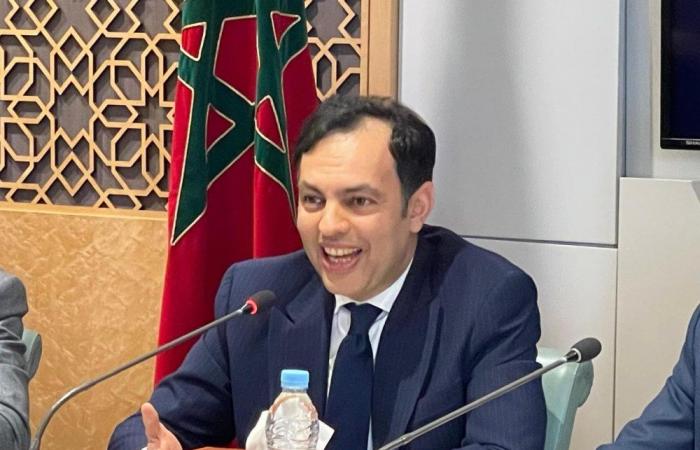Younes Sekkouri:
The adoption of this decree on December 26 reflects the government’s respect for its commitments to social partners within the framework of social dialogue, in accordance with the High Guidelines of His Majesty King Mohammed VI, may God help him, who places social justice and the dignity of citizens at the heart of the Moroccan social project. It must be said that this is not the first time that this government has made a double increase in the guaranteed minimum wage in the agricultural and non-agricultural sectors (SMAG and SMIG). Since the advent of this government and thanks to the social agreement of April 2022 and that of April 2024, a worker in the private sector who receives the SMIG will have seen their net monthly salary increase from 2,638 dirhams to 3,045 dirhams. An employee in the agricultural sector who receives the SMAG can see an increase in their net monthly salary from 1,859 dirhams to 2,255 dirhams.
It must be admitted that the expectations of workers are legitimate in the face of the challenges of inflation which the government has managed to contain, but to which the whole world remains exposed. The other challenge is that of converging the SMIG and the SMAG, a commitment that we aim to achieve, as a government, by 2028. We aim through this historic decision, taken during the round social of April 2022, to provide a response for the least paid sectors such as agriculture. Our country’s social policy aims to reduce inequalities and support the purchasing power of Moroccan families, particularly in rural areas.
In your opinion, what are the immediate repercussions of this increase on the purchasing power of workers, particularly in the most vulnerable sectors?
For clarification, the decree provides for an increase in the guaranteed minimum wage (SMIG) of 5% for non-agricultural sectors from January 1, 2025, bringing the monthly net salary to 3,045 dirhams, or an hourly wage of 17.10 dirhams. . This increase will be followed by another increase of 5% also at the beginning of 2026. As for the agricultural sector, the guaranteed minimum agricultural wage (SMAG) will be increased from April 1, 2025 to reach 2,255 dirhams net per month, with a daily wage set at 93 dirhams. In turn, the SMAG will be increased by an additional 5% in April of 2026 under agreements with the social partners.
If these increases represent an indisputable contribution to purchasing power, our duty is to ensure the effectiveness of these increases among employers. We ensure this work by directing our labor inspection and control system towards companies. In rural areas in particular, where the SMAG mainly applies, this revaluation constitutes a crucial lever for stabilizing the income of agricultural workers, often faced with irregular or seasonal remuneration. It will help alleviate economic disparities between rural and urban regions.
Furthermore, this increase will stimulate local consumption, strengthening local economies thanks to greater household spending capacity. Indirectly, it will also support local traders, artisans and services. It must be said that this measure will be accompanied by high-impact programs as part of our employment strategy and support for purchasing power. Which strategy has been finalized and will be deployed at the very beginning of 2025 for an overall budget of 14 billion dirhams voted within the framework of the Finance law. Finally, this initiative goes beyond the economic framework. It symbolizes a strong social commitment in favor of social justice and the dignity of workers, thus consolidating national cohesion.
How does the government plan to monitor the impact of this increase in minimum wages? Is a periodic reassessment mechanism envisaged?
Thank you for this question. Indeed, the effectiveness of the increase is a challenge that we take very seriously. The figures from the National Social Security Fund (CNSS) are encouraging regarding the last two increases made by this government since 2022. To this end, we are mobilizing the labor inspectorate for control while carrying out in-depth action with employers and unions to raise awareness among all. We are closely monitoring the evolution of the informal sector which, by migrating towards the formal sector, contributes to broadening the impact of these measures.
Between 2021 and 2026, public spending on civil servants in Morocco is expected to increase by 37.3%. Can you tell us more about this increase?
This increase has not always been easy. But I am convinced that it is the result of a shared vision between the government and social partners, to offer our fellow citizens the conditions of decent work with a salary that allows dignity. In this regard, we had to conduct rounds of negotiations with officials from several sectors. These negotiations resulted in major salary advances and the lifting of the injustice that prevailed in these sectors. On this subject, I remember the negotiations that we carried out with national education teachers. Their arguments were in their place and the outcome of the sectoral social dialogue with them made it possible to repair a large part of the injustice they suffered.
To return to your question, yes social dialogue has a cost, both in the public sector where we have made direct salary increases, but also in the private sector where the government has taken the decision to review the tax on income, particularly for the middle class, with effects from January 2025. This measure, which also affects the public sector, has a budgetary cost, insofar as this part of the IR will not be received by the State . However, in the historical progress of a nation, those in power must know how to provide timely responses to the aspirations of their society. History has shown that when the decision to repair a social injustice is taken, it always takes precedence over material or budgetary constraints.






